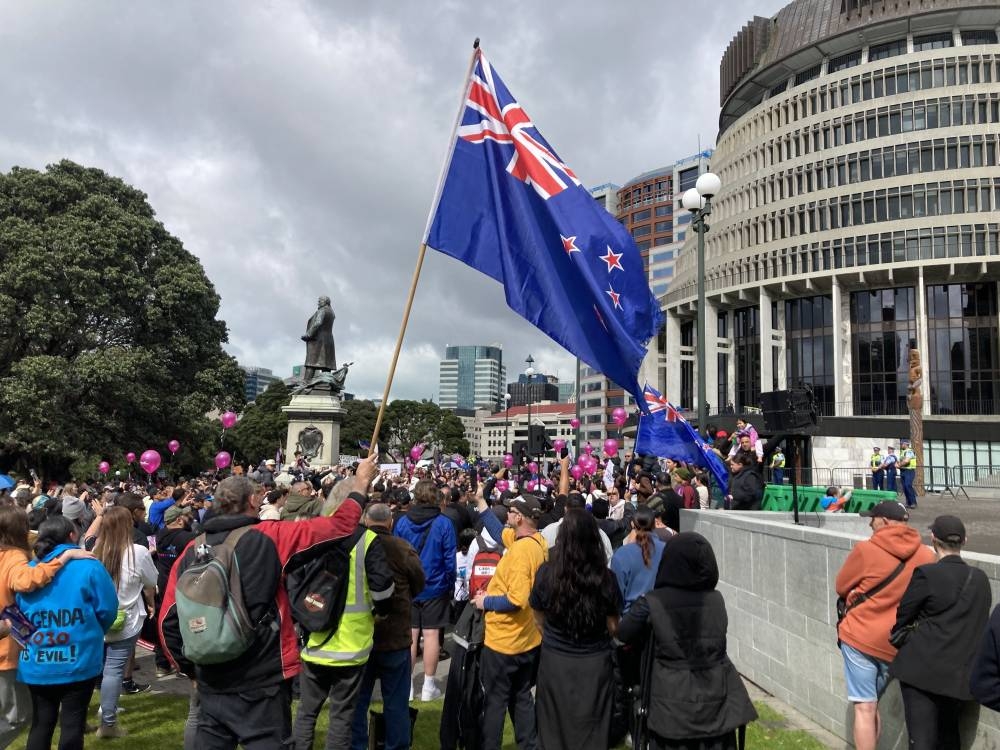New Zealand's centre-left Labour government heads into Saturday's general election facing an uphill struggle to secure a third term in office after losing charismatic leader Jacinda Ardern.
The 43-year-old stepped down in January, leaving Chris Hipkins to take over as Labour party leader and prime minister.
Despite a reputation for political nous, dry humour and a deep fondness for sausage-based snacks, Hipkins has struggled to keep up support in the face of a severe cost of living crisis and multiple cabinet scandals.
He is also battling a sense that, after two terms in office, New Zealand may be ready for a change.
According to pre-election opinion polls, his Labour party is lagging behind the conservative National party and barely cracking 30 percent of the vote.
"It's been a tough three years for New Zealand," Hipkins admitted early in the campaign, as the Covid-19 pandemic's aftermath was still being felt and inflation hit six percent.
"We go into this campaign as the underdog. We're going to turn this around and we're going to win," he said.
But Hipkins has struggled to emulate Ardern's popularity, which gave the party a landslide victory in 2020.
Ardern won praise for her decision to swiftly close New Zealand's borders during the pandemic, resulting in one of the lowest Covid-19 death rates in the world.
Her handling of dual 2019 disasters also won international acclaim. That year, a white supremacist attack on Christchurch mosques left 51 dead, and a volcanic eruption claimed 22 lives.
Ardern, who is in the United States to take up a fellowship at Harvard, this week urged New Zealanders to "vote for what you believe in".
She said the Labour government needed a third term to build on its work in tackling child poverty and inequality.
"Labour has had two terms in office. Long enough to make progress but not long enough to finish the job, and our country needs them to finish the job," she said.
Opposition leader Chris Luxon, a former airline executive, is waiting in the wings to take over.
His National party could win enough seats to form a coalition government with the ACT party, although recent polls suggest they may also need the support of more populist New Zealand First.
"The result is in the hands of the New Zealand people. That's why I keep saying if they want change they have to step up to the plate and party vote National to make that happen," Luxon said Thursday on the campaign trail.
Luxon has criticised Hipkins' leadership, asking how he could run the country if he couldn't control his cabinet.
Hipkins has admitted to a "messy" few months in government, during which a quartet of ministers either resigned or were sacked.
Both Luxon and Hipkins are trying to woo voters with a promise of lower household bills.
Hipkins has offered a 10-point plan including free prescriptions and basic dental care for the under-30s, plus scrapping tax on fresh fruit and vegetables.
Luxon is promising tax cuts worth up to NZ$125 per week to an average-income family, partly paid for by a controversial plan to tax top-end luxury homes bought by foreigners.

